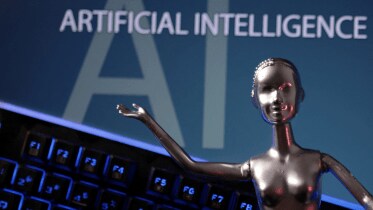In a major step towards shaping the future of artificial intelligence (AI), the United Nations Secretary-General’s High-level Advisory Body on AI (HLAB-AI) released its much-anticipated final report titled “Governing AI for Humanity” on September 19, 2024.
The report, hailed as a global milestone, lays out essential guidelines for managing AI’s benefits and risks to ensure this transformative technology serves all of humanity, particularly those often left behind.
The culmination of extensive consultations across diverse regions, the report builds on an interim release from December 2023. It provides a strategic framework aimed at closing the gaps in current AI governance systems and ensuring international cooperation in the governance of AI.
Speaking on the report’s release, UN Secretary-General António Guterres highlighted its importance, stating, “This report is not the end of our journey, but a crucial milestone in our ongoing efforts to ensure AI serves all of humanity.”
Global Cooperation and AI Governance
At the heart of the report are seven critical recommendations aimed at addressing governance gaps and ensuring AI is developed and regulated with equity and fairness. A key proposal is the establishment of a globally inclusive architecture for AI governance. This would prioritize international cooperation and collaboration, ensuring that AI’s power isn’t centralized in a few countries or companies, as is currently the case.
The report also calls for urgent global action to ensure AI protects human rights, a concern echoed by Guterres. “It was already clear that AI came with immediate and long-term risks, including to human rights,” he noted, underscoring the growing challenges AI poses to equity, ethics, and governance.
Key Recommendations
Among its major proposals, the report advocates for several pivotal initiatives to manage AI responsibly. These include:
International Scientific Panel on AI: A body to promote a shared understanding of AI’s capabilities, risks, and opportunities.
Global Dialogue on AI Governance: A platform within the UN to anchor AI governance in international norms, including human rights standards.
AI Capacity Development Network: Aimed at building AI expertise, particularly in developing countries that risk being left behind in AI advancements.
Global Fund for AI and the SDGs: Designed to bridge the AI divide and ensure that AI technologies contribute to achieving the UN’s Sustainable Development Goals (SDGs).
These recommendations are designed to foster inclusive growth and prevent AI from being monopolized by a small group of actors, ensuring that it serves the collective interests of humanity.
Building a Future of Inclusive AI
The report emphasizes the need for an “agile, inclusive, and effective” governance framework that reflects the rapidly evolving nature of AI. It stresses that global collaboration is crucial to ensure that AI develops in ways that are beneficial to all, and that no region or community is left out of its benefits.
Guterres called on UN Member States to take bold actions in response to the report. “I urge all stakeholders to give these recommendations their fullest consideration,” he said. He further stressed the importance of the upcoming Summit of the Future, where global leaders will have the opportunity to engage with the report’s findings and take the first steps toward implementing its recommendations.
